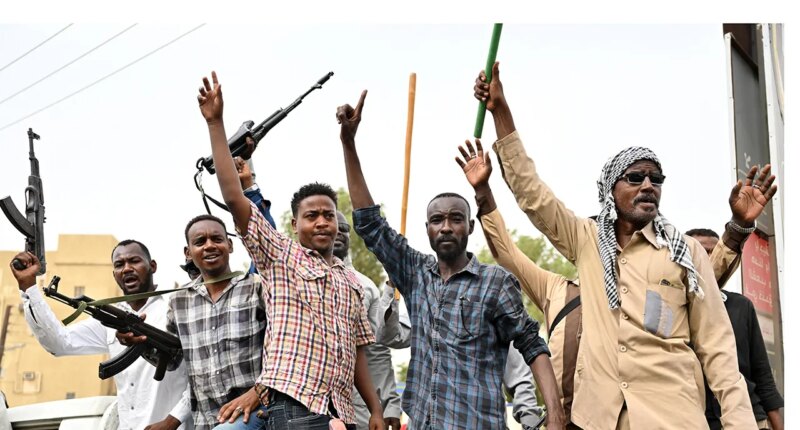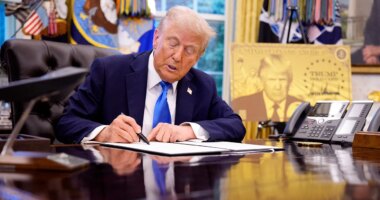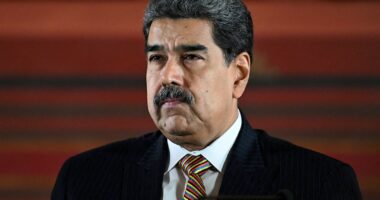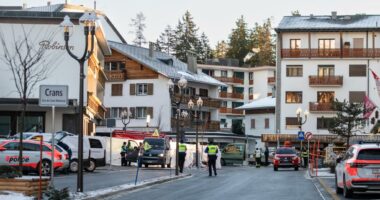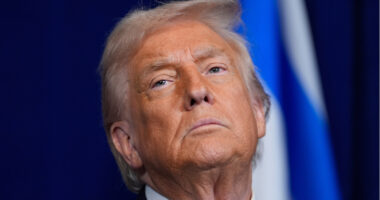Share this @internewscast.com
President Donald Trump’s international efforts to foster peace are gaining momentum in Sudan, where a conflict lasting over two years has claimed tens of thousands of lives and displaced approximately 14 million people.
A spokesperson from the State Department emphasized to Fox News Digital that resolving global conflicts is a top priority for President Trump. “The United States is committed to collaborating with our partners and other stakeholders to address the crisis in Sudan,” they remarked. “Engaging all relevant parties is crucial for achieving peace. We are focusing on de-escalating the violence and will persist in our efforts to mediate with the conflicting groups.”
Efforts to resolve the clashes between the Rapid Support Forces (RSF), led by Gen. Muhammad Hamdan Dagalo Musa, known as Hemedti, and the Sudan Armed Forces (SAF), commanded by Gen. Abdel Fattah al-Burhan, initially began under the Biden administration but stalled. However, these initiatives have gained traction under President Trump, who established an international coalition, or “Quad,” in partnership with Egypt, Saudi Arabia, and the United Arab Emirates in September.
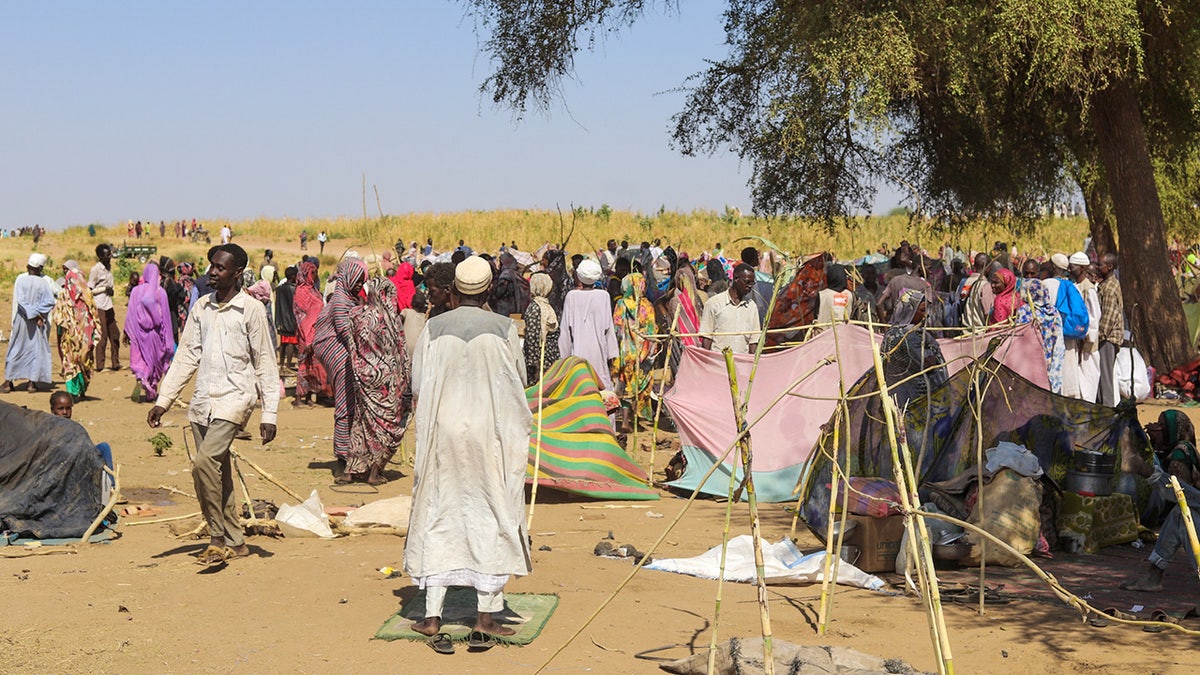
Sudanese refugees who escaped el-Fasher city, following the RSF’s lethal attacks in Darfur, have found shelter in a camp in Tawila, Sudan. (AP Photo/Muhnnad Adam)
Recently, the dialogue for peace has intensified significantly. Massad Boulos, the White House’s senior advisor on Arab and African Affairs, fresh off negotiating a ceasefire in the long-standing conflict between the Democratic Republic of the Congo and Rwanda, engaged in discussions with Egypt’s Foreign Minister Badr Abdelatty in Cairo over the weekend.
Subsequently, on Monday, Boulos conferred with the Arab League, which noted that Trump’s envoy had updated them on the U.S. initiatives to “cease the conflict, accelerate aid distribution, and commence a political dialogue.”
The Sudan Tribune then quoted Boulos as saying later on Monday, “Both parties have agreed in principle, and we have not recorded any initial objection from either side. We are now focusing on the fine details.”
But the two sides are still fighting. On Tuesday, Sudan’s Defense Minister Hassan Kabroun talked to the country’s state television network, following a government council meeting in Khartoum, saying, “We thank the Trump administration for its efforts and proposals to achieve peace,” but added: “Preparations for the Sudanese people’s battle are ongoing. Our preparations for war are a legitimate national right.”

Massad Boulos, senior advisor to President Donald Trump, speaks during an interview with the Associated Press at the United States’ embassy in Cairo, Egypt, Monday, Nov. 3, 2025. (Amr Nabil/AP Photo)
Also on Tuesday, White House Press Secretary Karoline Leavitt weighed in, telling reporters, “The United States is actively engaged in efforts to bring about a peaceful resolution to the terrible conflict in Sudan. We remain committed to working with our international partners, including Quad members — Egypt, Saudi Arabia and the UAE — as well as others to lead a negotiated peace process that addresses both the immediate humanitarian crisis and the longer-term political challenges.”
Leavitt continued, “I actually spoke with Secretary Rubio about this, this morning, as, of course, there’s been, you know, kind of an uptick in recent reporting on the matter. And he assured me that the administration is very much engaged. We’re in pretty frequent communication with those Arab partners that I just mentioned. And we want to see this conflict come to a peaceful end, just as we have with so many others. But it’s — the reality is — it’s a very complicated situation on the ground right now.”
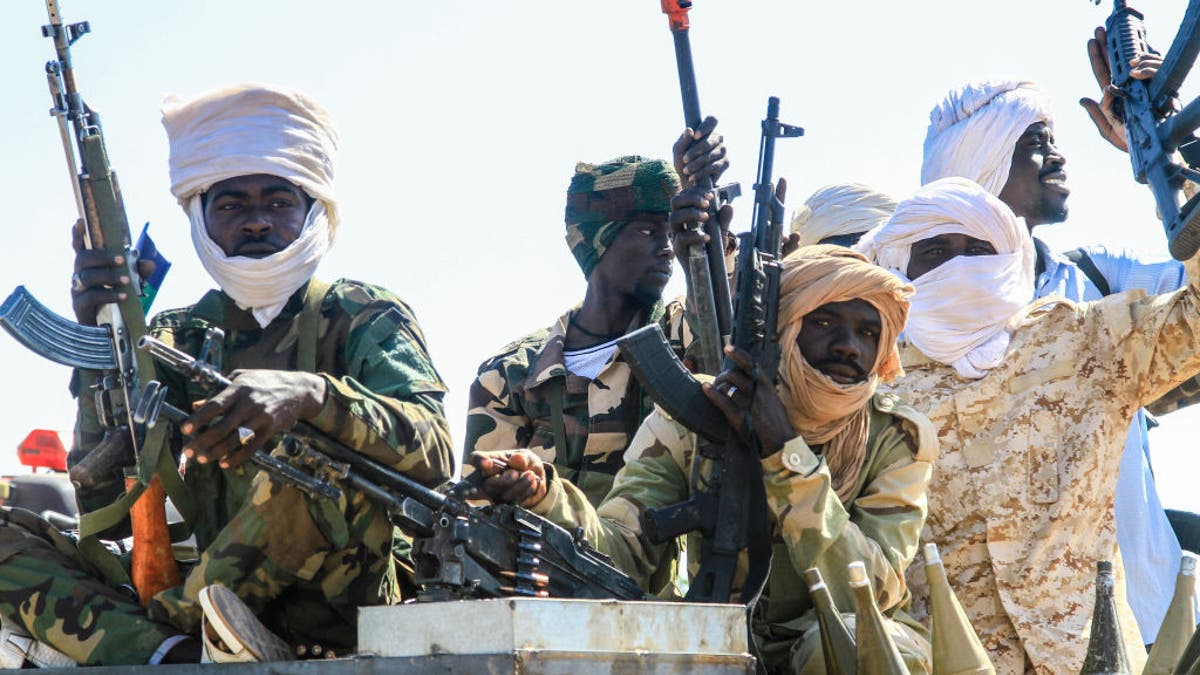
Fighters of the Sudan Liberation Movement, a Sudanese rebel group active in Sudan’s Darfur State which supports army chief Abdel Fattah al-Burhan, attend a graduation ceremony in the southeastern Gedaref state on March 28, 2024. (AFP via Getty Images)
Analysts say last week’s fall of the Sudanese city of El-Fasher, and with it the Darfur region to RSF fighters, effectively cutting the country in two, may have spurred all parties into action. “The RSF’s full control of the Darfur region could have dangerous and worrying consequences in the future in terms of partition,” Boulos told Al Jazeera.
On Tuesday U.N. Secretary General Antonio Guterres called for an immediate ceasefire in Sudan. Speaking on the sidelines of a conference in Qatar, Guterres said the war was “spiraling out of control.”
“The fall of El-Fasher to the RSF is a defining moment in Sudan’s brutal civil war”, Mariam Wahba, research analyst at the Foundation for Defense of Democracies (FDD), told Fox News Digital. Wahba continued: “It marks the militia’s full control of the Darfur region and leaves Sudan effectively split in two.”
The human cost is staggering. On Monday, the U.N. reported that “over 21 million people across Sudan are facing high levels of acute food insecurity — the largest such crisis in the world.” The latest Integrated Food Security Phase Classification (IPC) found that famine is ongoing in the now-captured El-Fasher and in Kadugli, South Kordofan, with families trapped and surviving on leaves, animal feed and grass.
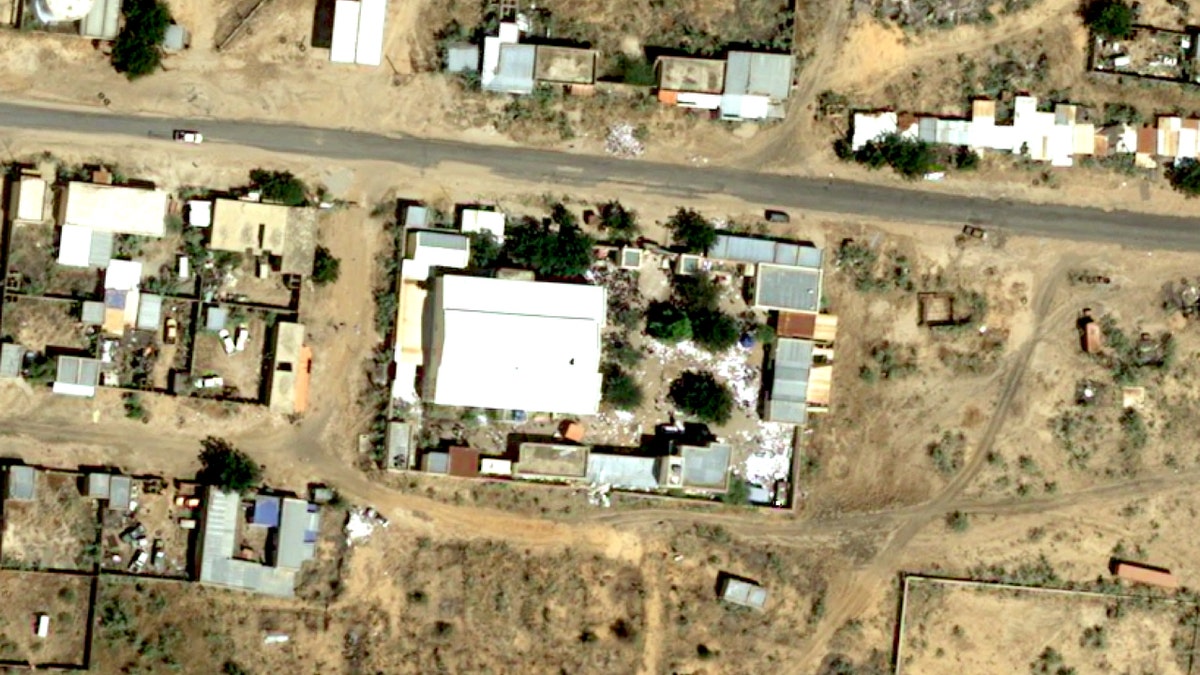
Yale researchers document evidence of atrocities in Sudan’s El Fasher using satellite imagery. (Humanitarian Research Lab Yale School of Public Health / @Airbus DS 2025)
The Yale School of Public Health’s Humanitarian Research Lab released satellite images taken over El-Fasher over the last week, stating Tuesday, “Evidence of body disposal activities include at least two earth disturbances consistent with mass graves at a mosque and the former Children’s Hospital; there is one new instance of removal of objects consistent with bodies. This activity appears consistent with RSF conducting cleanup of their alleged mass atrocities.”
Sources say intense negotiations led by the U.S. team are continuing. Details of what’s on offer have not been revealed, but it’s understood an agreement would start with a three-month humanitarian truce, to allow aid delivery in, followed by a permanent ceasefire and a civilian-led transition.
“For Washington, the stakes in Sudan are rising by the day,” the FDD’s Wahba told Fox News Digital, adding, “The more time the RSF has to cement its control over Darfur and push toward Khartoum again, the harder it will become to prevent the country’s permanent collapse. What happens next in Sudan will shape the balance of power across the Horn of Africa and signal to America’s adversaries whether the United States still has the will to confront instability before it spreads in this critical region of the world.”
